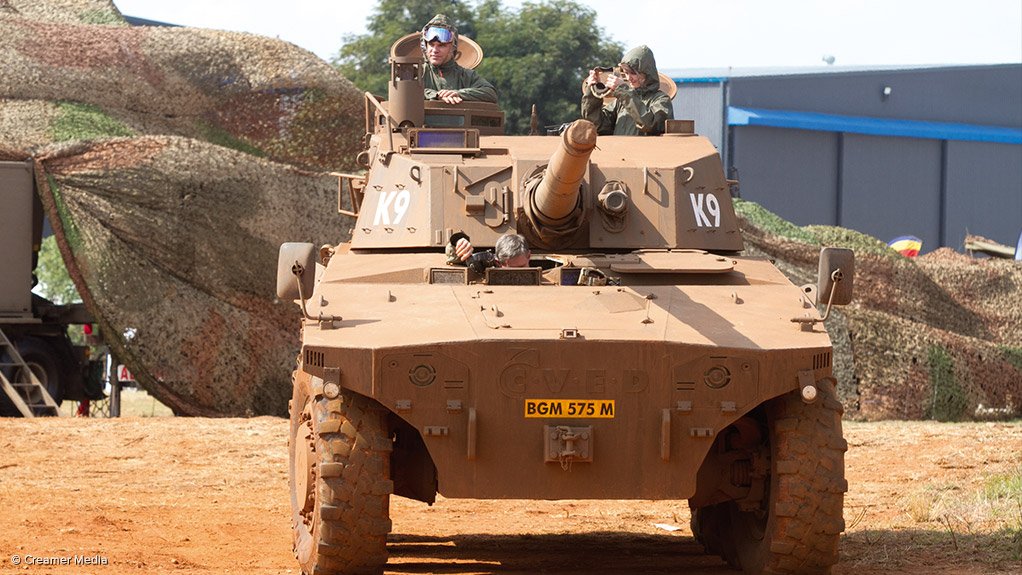State-owned aerospace and defence technology company Denel is looking to grow its export market by exploring other areas of specialisation, innovation, customisation and cyberspace.
“We have innovative technological ability for rapid prototyping and quick-to-market solutions and the ability to customise. We engage with clients and find out what is unique in their areas and customise the project or product for their specific needs,” says Denel strategy group executive Theo Kleynhans.
He points out that Denel’s market is in the Middle East, eastern Asia and Africa, and its relationships in Africa are improving, as the market has begun to trust its products.
According to Kleynhans, about 65% of Denel’s revenue is secured through exports, and the company procures more than 50% from local suppliers, with 70% of its suppliers coming from South Africa. “We bring an incredible amount of work for defence-related activities into the country.”
The company takes on all the marketing costs, export and forex risks, as well as onerous terms and condition of procurement on behalf of smaller local suppliers that would not have been able to take on the liabilities.
Kleynhans says the company’s turnover is more than R8-billion a year and, with the already low national defence budget shrinking, a key factor that supports the viability of the company, is volume through international sales.
However, he mentions that clients want to buy the best value, and that this means they want their industries – offsets – to be involved during the production processes of the products.
“As a result, we see more joint ventures with our clients on projects and we are also getting into strategic agreements with our clients on research, products development and production. This strategic relationship helps us leverage investment to keep ourselves current and relevant,” he explains.
Defence Cluster
Kleynhans says the local defence cluster requires industrial support and there are several strategic technologies that Denel is maintaining for the Department of Defence (DoD), and products that it is customising for the department at a lower cost than products supplied from Europe or the US.
“With our strategic capability of customisation, enhancement, upgrading, life extension and maintenance, we bring a huge saving to the DoD. We are providing a very important level of independent industrial support and can extend the life cycle of products, as well as customise and adapt them as we go along.”
He says Denel has “good government- to-government support”, and a healthy relationship with the DoD and Armscor, the acquisition agency for the DoD, which enables Denel to access the international market.
“In terms of product innovation the DoD allows us to see how equipment will be used in a battle scenario. This gives us insight in terms of how the design of a product for the export market should look.”
Denel is the prime contractor or supplier for strategic programmes such as government’s investment in the Rooivalk combat helicopter, as well as the Hoefyster and Mokopa anti-tank missiles.
“Rooivalk is a great product, we need to get an export partner. We are working on enhancing the longevity of the aircraft. We are doing all the maintenance, repair overhaul of the product as well as enhancements on the aircraft, and working on some weapon upgrades on the aircraft that are being tested,” Kleynhans indicates.
He says Denel is in discussions with the South African Air Force (SAAF) and the DoD on major upgrades on Rooivalk and he is hopeful that their discussion could result in export opportunities for the company. Kleynhans says the Rooivalk aircraft is operational and is supporting the SAAF.
Skills Development and Transformation
Denel has a large industrial and engineering base and is investing in bursaries and mentoring programmes to help young people to become engineers and get exposed to the company’s processes, technology and systems.
“Transformation to us is multifaceted, we are looking at youth and women participation, as well as supply chain normalisation and inclusivity. Our employment equity is at 60% black employees, with women comprising about 50% of new appointments in the last year. In our supply chain, we take the National Treasury’s Preferential Procurement Policy Framework Act very seriously.”
He concludes that the company is driving a process to ensure that it becomes inclusive in terms of outsourcing from new black-owned companies.
Edited by: Zandile Mavuso
Creamer Media Senior Deputy Editor: Features
EMAIL THIS ARTICLE SAVE THIS ARTICLE
ARTICLE ENQUIRY
To subscribe email subscriptions@creamermedia.co.za or click here
To advertise email advertising@creamermedia.co.za or click here













